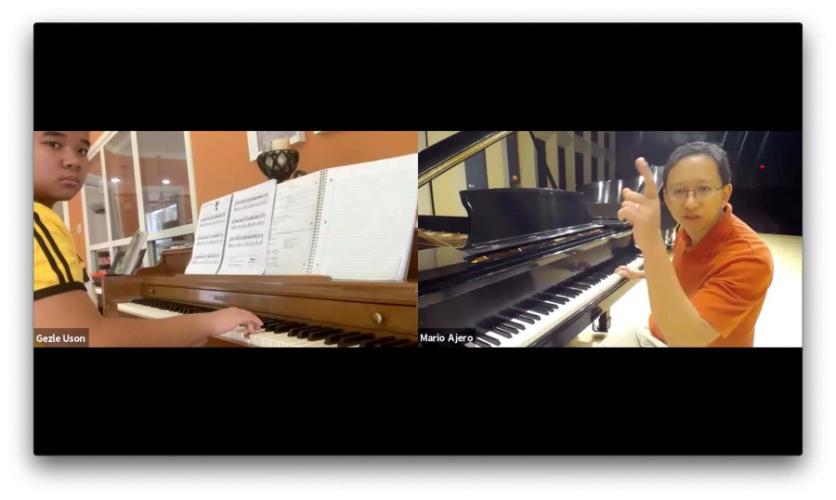NACOGDOCHES, Texas – With so many youth camps being canceled this summer, the Stephen F. Austin State University School of Music has a camp that offers online piano instruction that can be enjoyed from the safety of one’s own home.
Registration for the Piano in the Pines virtual camp has been extended to Friday, July 3, for the week-long camp, July 20 through 24, for junior high and high school pianists. Camp director Mario Ajero, professor of piano pedagogy at SFA, used the success of the SFA Music Preparatory Division’s virtual spring recitals for inspiration to take the traditional piano camp online.
“When COVID-19 prevented our Music Prep students from having their traditional end-of-the-semester recitals in our recital halls, I came up with the idea of putting together a virtual recital where we would collect pre-recorded performance videos from the students’ homes,” Ajero said. “We would then broadcast those videos on a Facebook Live event so that family members and friends even outside of East Texas could celebrate the students’ accomplishments. The success of these SFA Music Prep virtual recitals inspired me to shift the Piano in the Pines Camp to an online format that would include private lessons and classes with SFA piano faculty and culminate in a virtual recital.”
To present the camp online, ensuring faculty had the necessary computers, mobile devices, cameras and microphones to deliver positive music-learning experiences in an online format was paramount.
“Fortunately, internet speed is very reliable and fast on campus, and I feel confident that we won’t have to worry about losing connections on our end,” he said. “The biggest challenge is to make sure that the students who register have the technology and internet speeds to reliably connect with us.”
Access to a computer or mobile device with a decent microphone and camera is a requirement for students. Video conferencing programs like Zoom have given musicians the ability to adjust the audio settings to remove various filters and compression that optimize the online calls for speech. With these new settings, musical performances can be broadcast remotely over the Zoom calls in a way that is faithful to the original sound, Ajero said.
Students will receive daily private online lessons with faculty, participate in virtual duets and ensembles with other student pianists, attend online classes covering a variety of relevant topics for young pianists, and perform in the SFA Piano in the Pines Virtual Recital at the end of the week.
“The good news is that many students and their families had to adapt to online instruction during the spring,” he said. “So we feel families are more prepared for this than they ever were. We also intend on sharing some information and short tutorial videos on how to achieve the best home environment for the online music instruction that they will partake in.”
Long before COVID-19 halted in-person instruction for public schools and universities, Ajero had invested a number of years of research in remote piano teaching to the point “we’re confident that we can still offer positive music-making experiences online,” he said.
Ajero recently gave a presentation for The Peabody Institute at Johns Hopkins University entitled “Technology to Teach Keyboard Remotely.” He said he was surprised that close to 500 teachers and administrators from across the country registered for the webinar.
“I wish these circumstances did not force us to teach and learn in this fashion,” he said, “but it is comforting to know that we can with technology that is readily available to most people.”
Although most students prefer a traditional face-to-face camp experience that immerses them in the university environment, the response to the online camp has been good, Ajero said.
“As someone who values music education as such an integral part of a young person’s development, I feel that online piano instruction is absolutely better than no music-making experiences at all,” he said. “We aim the camp at junior high and high school piano students usually at the intermediate and advanced levels. If there are any beginner piano students interested in online lessons, they should contact the SFA Music Prep program for their summer offerings.”
Register for Piano in the Pines camp through July 3 at sfasu.edu/pianocamp. Ajero can be reached at ajeromp@sfasu.edu.
 Axe ’Em, Jacks!
Axe ’Em, Jacks!
